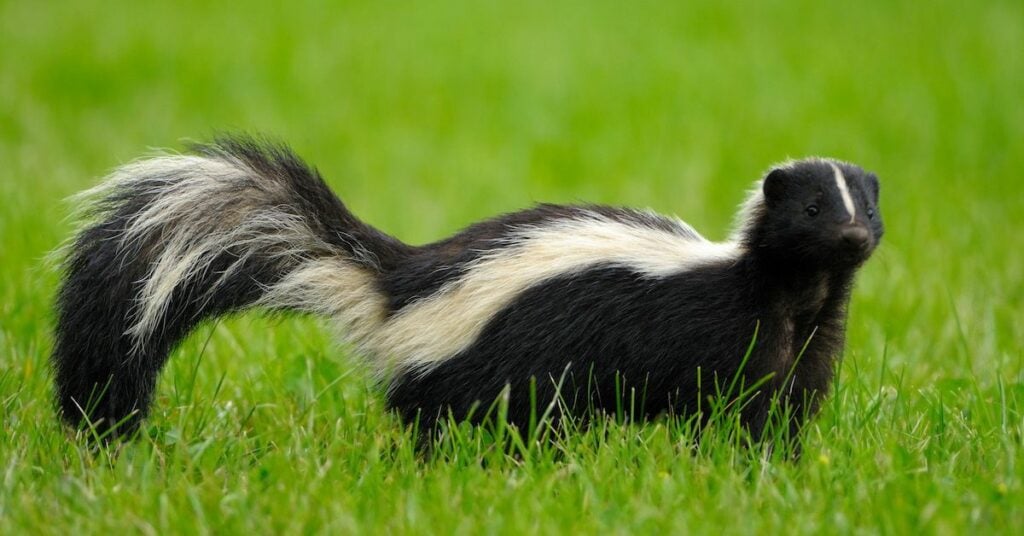Snake venom is highly toxic saliva containing zootoxins that help immobilize and digest prey. This also protects them against predators and other threats. Snake venom is injected during a bite by special fangs, and some species can also spit venom. But do you know what animal is immune to snake venom?
Skunks are resistant to snake venom and will consume venomous snakes. Skunks are one of the few animals with this immunity and are unaffected by venom doses 100 times higher than what would kill a household pet.
All About Skunks
While these animals prefer insects and grubs, their diets are flexible and include small rodents such as mice. Skunks scavenge for food during the colder months and frequently come across these small rodents in wooded areas or near garbage left outside of homes.
Skunks feed on rattlesnakes, which are immune to snake venom. Skunks are one of the few animals with this immunity and are unaffected by venom doses 100 times higher than what would kill a household pet. Seeing a skunk in your yard or near your home during the warmer months means rattlesnakes will stay away.
Avoid approaching a skunk, and keep any pets restrained if you come across a skunk. While the risk of being sprayed by their infamous defense mechanism is reason enough to avoid these critters, they can also carry a variety of diseases that are fatal to humans and household pets. Skunks can transmit diseases such as rabies, intestinal roundworms, canine distemper, canine hepatitis, and others. (Source: Pets World)
Why Do Skunks Stink?
Skunks are well-known for their foul odor, but have you ever wondered why they stink? When threatened, they use their smell as a unique defense to ward off predators or unwanted guests. When the skunk’s black and white coloring or foot-stomping isn’t enough to deter predators, they’ll use their potent spray to scare them away. Skunks can spray from two glands located on each side of their anus. Skunks only carry enough of this chemical for five to six uses, and producing a new supply can take up to ten days.
The skunk’s spray is a thiol, an organic compound with sulfur as one of its main components. Most people dislike the rotten egg scent of sulfur, which makes a skunk’s spray extremely pungent. The smell can be detected up to half a mile away and linger for days to weeks. Their spray may also cause eye-stinging, temporary blindness, and nausea. Skunks have excellent aim and can hit targets up to 10 feet away with pinpoint accuracy. Skunks are rarely attacked by most predators, including foxes, wolves, and badgers, due to their strong odor. On the other hand, the Great Horned Owl is the skunk’s only regular predator.
Humans and pet owners want to avoid encounters with frightened skunks because the smell of their spray is difficult to remove from both people and pets. Home remedies for removing the scent are ineffective against the chemical composition of a skunk’s spray. (Source: Pets World)
Image from Greenmatters
